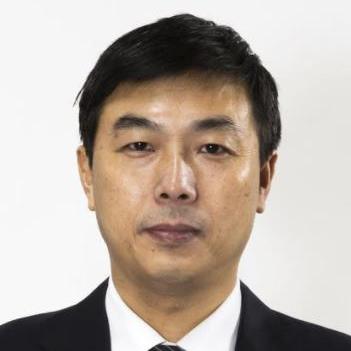With the state funeral and national condolence staged on 28-29 December 2011, clamor and mourning caused by death of Kim Jong Il, late top leader of N. Korea, seem virtually punctuated and Kim Jong Un, a 28 year-old heir has officially embarked on journey to lead the country. December 28th national condolence memorial actually turned into his inaugural ceremony as the DPRK’s state head in-name Kim Yong-nam, facing dozens of thousands of people rally, declared him as the “supreme leader” of military, government and the Worker’s Party. However, speculations about what sort of the journey would be will never settle down in the wake of Kim Jong Un’s inauguration. So far, no one has crystal ball to ably and precisely tell what destination the journey – Kim family’s Phase 3 Odyssey – would lead that country to: collapse of the regime, dissolution of the DPRK, or a real rejuvenation of the country?. At least, there remains a lot of uncertainties for the moment.
The DPRK remains in a sensitive and risky situation following the pass-away of its former leader. The country is valetudinarian in many terms: poor economy, lack of food, military monopoly, power hereditary system, nuclear controversy and even daunting international sanctions and isolation. Ironically, these issues are all the legacy of Kim Jong Il, and his son Kim Jong Un has no way to dispense with when he succeeds to his father’s position and prestige in N. Korea. In the past 20 years N. Korea has been struggling at the verge of steep cliff and the outside assumption of the regime collapse never been muted. Quite few people of international community believe that nuclear weapons could truthfully salvage the country out of precipice. On contrary, Kim Jong Il’s nuclear ambition has deepened its international isolation, and squander its invaluable resources. N. Koreans have sincerely unleashed their grief and sorrow in the past week. Now the young leader is expected to redirect country to a new road – a road where 2.2 million N. Koreans can have a better life at the end.
Yet, Kim Jong Un seems to have little choice to present his leadership completely different from his father. Firstly, he has to shore up military elites of his country for their trust and loyalty. After his father’s 17 years long “military first” politics, a great number of military elites have huge stakes in the continuation of that system. Any rapid change at his early tenure might trigger tough opposition. Obviously it has less to do with the “Great Successor” himself than with the system he inherits. Expectedly, the reliance of Kim Jong Un’s leadership to the continuity of the “Military First” politics in N. Korea will undermine the prospect that new regime would quickly change its policy domestically and internationally.
Secondly, the stability of N. Korea’s power transition in the post-Kim Jong Il era depends largely on power centers of the regime coalescing around Kim Jong Un. But the stability of Kim Jong Un’s centrality is dramatically up to how strong the unity of “regency” behind him could run in the transition. Kim Jong Eun, as he grows into the job, will rely on a collective leadership system that includes his uncle, Jang Song Thaek, and Ri Yong-ho, top military officer. The National Defense Commission(NDC), a 10-man board that Kim Jong Il declared the ultimate decision-making body more than a decade ago, will continue to work at the top level. When Kim Jong Il was alive, he was able to directly hold sway at the NDC. Now who will be a real “arbiter” in the NDC when the core members disagree?
Thirdly, in what capacity and in what way would the young leader feed their people? Without substantive change of its foreign policy, there is no exit for the country to walk out of poverty and isolation. Without any positive move of nuclear abandonment, the U.S., ROK and Japan might hardly offer assistance and lift sanctions as desired. Likewise, N. Korea can not revive its torn economy without significant international engagement. Now, nuclear weapons and nuclear program have been proclaimed in Pyongyang as one of the most brilliant “heritage” of Kim Jong Il. As long as the protracted standoff of the 6 Parties Talks does not break down, N. Korea’s woe of terrible shortage of food will be worse, and the new round of “Arduous March” will certainly discredit the young leader badly and eventually spark social unrest in N. Korea. That consequence, if truly happening, would be horrible.
N. Korea is at historic juncture. The young leader should recognize that nuclear weapons are the biggest hurdle rather than an amulet. Any prospect of N. Korea’s survival and economic rejuvenation should be ultimately through denuclearization. For the moment, the international community should nicely reach out to Kim Jong Un, and encourage Pyongyang to reset his country onto new direction. No one wants to see disastrous collapse of the DPRK or outbreak of 2nd Korean War. Let’s leave door open for any positive change of this country.
Zhu Feng is Professor of School of International Studies, Peking University


